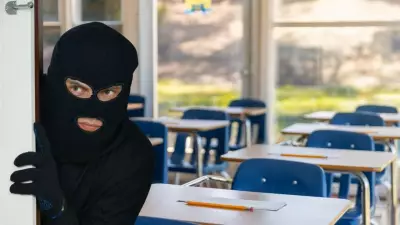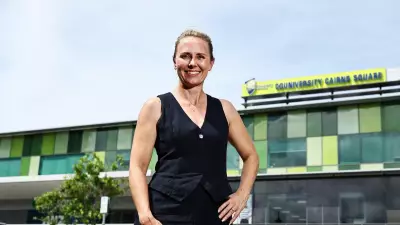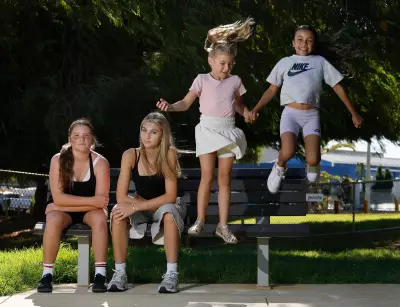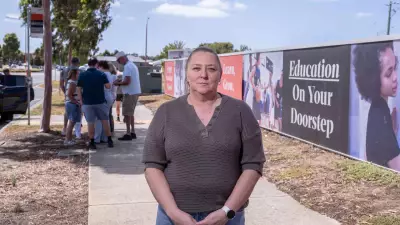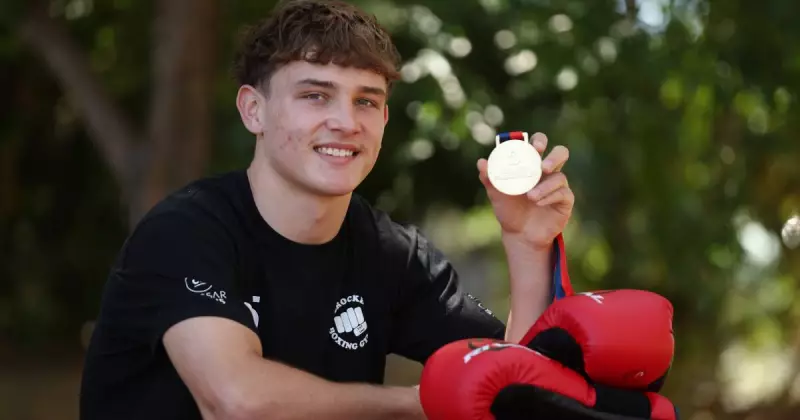
Just weeks after claiming the under-17 Australian middleweight championship title, 15-year-old Rainer Schilder has revealed the career-defining victory may mark his final appearance in the ring.
From Champion to Chapter Closed
The Dapto High School student had been working toward the national title throughout the entire year, aware that his professional boxing journey operated on a compressed timeline. Rainer Schilder secured his championship belt knowing this moment could represent both a pinnacle and conclusion to his competitive fighting career.
"I'd had my eyes on this for a while, and I knew all year that I wanted to do this," Schilder confessed. "I told myself I was going to become the Australian champion. I knew in the back of my mind I could be."
The talented teen added with surprising maturity: "Win or lose, I probably wasn't going to keep going, to be honest."
Lessons Beyond the Ring
Training under coaches Vito Gaudioso and Nick O'Hara at Crocker's Boxing Gym, Schilder absorbed skills that extended far beyond boxing techniques—life lessons that will serve him long after he steps away from competition.
"I'm a smart kid, so I don't really need boxing anymore," Schilder explained. "There was a time when I did, but not now. The stuff Vito and Nick have taught me, I can give to other kids."
He particularly highlighted Gaudioso's influence: "Vito is a real mentor for me. He teaches some really great stuff because he's been through it all, he's had a big life, and he just continues to guide these younger kids in the gym."
Those mentorship lessons proved invaluable when facing criticism about his chosen sport. Schilder addressed common misconceptions about boxing's nature directly.
"People do say like, 'oh he's such a pretty boy, how are you doing this? Oh it's such a violent sport,' but it's an Olympic sport," Rainer stated. "It's a proper sport, and there are proper rules and regulations around everything."
He emphasized the transformative potential of boxing for young people: "People just don't know how much boxing means to some of these kids, and how much they can actually get from the sport. It's not just all blood and violence."
"So many kids can come out of this sport, even if they don't continue, having learned so much for life—resilience and how to bounce back, and all the hard work that they put into boxing certainly shows in the rest of their life."
Family Legacy and Future Directions
Schilder's entry into combat sports seemed almost predestined. Growing up immersed in mixed martial arts culture, he naturally gravitated toward boxing around age 11.
"My dad does jiu-jitsu, and I always grew up grappling with my brothers and cousins and just being around MMA gyms," he recalled. "I knew I was always going to get into some sort of martial art, and it was boxing that I put my energy into."
Initially using the sport for fitness and channeling energy constructively, Schilder found boxing provided unexpected benefits. "Boxing is a great way to put all your energy into one thing," he explained. "You get a lot out of it, but you'll also learn about discipline and resilience and all that stuff you need in life."
His parents required little convincing to support his boxing journey, though his mother initially experienced understandable nerves. "They supported me from the start and thought it was heaps cool," Schilder said. "The more fights I had, the less nervous they got."
He shared an amusing early prediction from his coach: "After the first week I started training, Vito called my mum and he said, 'Susie, this kid's gonna be a world champion, he's gonna get me a house on Cliff Road.'"
Now turning his attention to senior subjects and future career planning, Schilder appears to be following a family tradition—just in a different field. "I'm looking into doing a psychology degree, because I do find that stuff really interesting and want to put my energy into it," he revealed.
His academic ambitions align with both his self-awareness and family background. "I've always been a bit smart; thrived off assessments and all this school work," Schilder noted.
He demonstrated remarkable insight about balancing priorities: "When you put so much time into something like boxing, it gets taken away from something else. You feed one thing and starve the other. It's about finding a balance—I need to learn that balance for my well-being and everything."
The career path makes perfect sense given his mother already operates a psychology business, and his older brother is currently completing psychology studies.
Transitioning his focus entirely to academics shouldn't prove difficult for the disciplined teen. "I've always had the motivation to do something, no matter what," Schilder stated. "I'm going to put my 100 per cent into it, and boxing has been just that."
He confirmed his competitive boxing days are likely behind him: "I don't think I'm going to be boxing much longer after this. I'll probably just start looking to focus on my schooling and just be a positive role model for other people."
Schilder leaves the sport with profound appreciation for the unseen efforts behind athletic success. "I feel like everyone sees the limelight and the titles, but no one really sees what goes on behind the scenes, and how much work you put in and how much sacrifice it really is; no one actually really knows."


